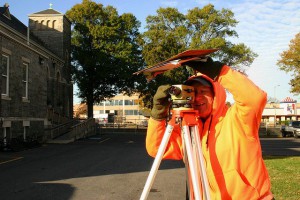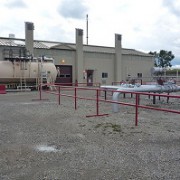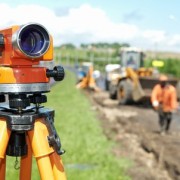What Should Oil and Gas Companies Look For in a Registered Land Surveyor?
 In the business world, standards and regulations exist for a good reason: by creating an agreed-upon set of standards for an entire industry, everyone operating within that industry knows what to expect when it comes to hiring contractors or doing business with other companies. This can help cut down on the amount of surprises a company experiences while working on a project. This post examines the standards and regulations that you should expect from a registered land surveyor.
In the business world, standards and regulations exist for a good reason: by creating an agreed-upon set of standards for an entire industry, everyone operating within that industry knows what to expect when it comes to hiring contractors or doing business with other companies. This can help cut down on the amount of surprises a company experiences while working on a project. This post examines the standards and regulations that you should expect from a registered land surveyor.
Standards and Regulations for Land Surveying
The oil and gas industry is filled with different standards and regulations, all of which are aimed at helping companies do business quicker, safer and more efficiently. However, in order to get the best benefits out of these regulations, you have to take the time to understand what they really mean, and how they affect your business.
This is particularly true when it comes to selecting a registered land surveyor to work with. Knowing what standards and regulations land surveyors comply with, and what those standards and regulations really mean, can help you make sure you select the right professional registered land surveyor to work with, and that can make all the difference for your project.
Land surveying standards and regulations that you should be aware of include:
- Safety regulations
- Drug and alcohol regulations
- Pipeline data standards
Safety Regulations
Safety regulations for contractors in the land surveying industry are offered by a number of third party organizations, including:
- ISNetworld
- PEC Safety
- PICS
While each of these different organizations functions in their own unique way, they are all alike in that they offer services for verifying the safety knowledge and compliance of oil and gas surveying professionals. These third party programs often pull from a diverse set of industry safety standards and safety regulations set by state and federal governments.
It’s important that you take a little bit of time to get to know each of these organizations to find out how they’re alike and how they differ; this will help you know exactly what each of these certifications really signifies.
Drug and Alcohol Regulations
Keeping a standard that oversees your contractors’ drug and alcohol usage can play an important role in creating a successful project with no unpleasant surprises or major safety concerns. Fortunately, National Compliance Management Service (NCMS), another third party standards organization, provides drug and alcohol auditing services that are specifically designed to help contractors live up to the expectations of their clients.
These NCMS audits establish a program that helps a contract organization put the specific drug and alcohol requirements of their client organization into practice. This program can include things like written policies, established screening methods, randomized testing, and regularly scheduled annual testing. As a result, any client that establishes a drug and alcohol monitoring program for their contractor organizations through NCMS can always be sure that they have a full and accurate understanding of what steps are being taken to ensure compliance.
Pipeline Data Standards
Pipeline data standards can help give you a better idea of the final product that your registered land surveyor will provide you. Keeping these standards open and well established helps ensure that all companies that work in the oil and gas industry will be able to deliver data to one another without having to worry about custom software programs or vendor-specific data architectures that stand in the way of the free distribution and easy use of data.
The two main pipeline data standards for the oil and gas surveying industry are the Pipeline Open Data Standard (PODS) and the ArcGIS Pipeline Data Model (APDM). These two standards should not be considered competitors; they have some similarities, but function in slightly different ways. Getting to know both of these standards is important, as it will help you select the standard that best meets your needs, and then select a registered professional land surveyor that can work within the context of that standard.
Image Source : Elvert Barnes









